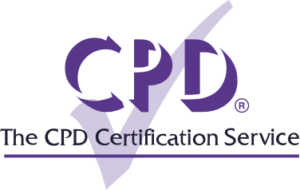In this Care Home Workers CPD Guide
Why do Care Home Workers need CPD?

A care home worker is a professional who provides support to elderly or disabled individuals in a residential care setting. The individuals that they support will all have individual identified daily living needs that they are unable to meet independently. A care home worker will provide support to a person based on their type of need and level of support required.
They can help residents with the following tasks:
- Getting up in the morning.
- Bathing.
- Dressing.
- Movement and transfers.
- Eating and drinking.
- Posture control to avoid pressure sores.
- Emotional support.
- Social support.
- Maintaining relationships.
What our customers have to say
Dan King
Mobilisation, Training & Performance Manager

Sophie Aiken
HR Manager

Harriet Lee
Retail Recruitment Manager

What CPD courses do Care Home Workers need?
We have a lot of courses suitable for care home workers that all cover the guidelines and regulations to provide safe and effective care. Some of these are listed below but please see our website for the full list of health and social care courses.
Pain Control and Management in Care – this course will provide a greater understanding of what pain is, how this can impact people’s lives, and how pain can be managed. You will learn how to assess pain, identify pain in individuals that find expression difficult, and how holistic care can be used to improve an individual’s experience of pain.
Administering Medication – this course provides vital knowledge on how to correctly store, administer and dispose of medication in line with government guidelines. It will cover different types of medication and methods of administration.
Care Certificate – this course covers 15 different care certificate standards providing the fundamental skills needed to work in the health and social care industry. It includes what knowledge, skills and behaviours are needed for safe and effective care. Our course follows on from the findings of the Cavendish Review to improve training and development in the sector.
Customer Service in Health and Social Care – this course teaches the importance and benefits of good customer service in the health and social care sector. It will cover effective communication, body language and active listening. It also includes how to handle complaints using skills taught throughout the course.
Dementia Awareness – helping people with dementia is extremely common when working in care homes. This course will teach how to diagnose, treat and live with dementia whilst maintaining quality of life and delivering person-centred care.
Deprivation of Liberty Safeguards (DOLS) – this is an extremely important area in the care sector which ensures that a person’s human rights are preserved when being looked after. You will learn the DOLS legislation that will assist you in making informed decisions that promote an individual’s choice whilst adhering to the Mental Capacity Act. It will provide a full understanding of deprivation of liberty, when a deprivation can be put in place and how to make an assessment for this. It is particularly helpful for care workers working with elderly people and those with mental health illnesses.
Dignity in Care – this course explores dignity and covers the four different types of dignity. You will learn good practice in ensuring a person’s dignity while they are receiving care and support. It will also cover the 10 dignity dos and don’ts and review the eight factors that contribute to dignity in care.
End of Life Care – in a care home it is common for residents to near end of life, and this requires additional knowledge and skills to ensure the delivery of great end of life care. Communication skills are crucial for this as the working relationship and picking up on cues from your residents is important for comfort, pain management and person-centred care.
Incontinence and Catheter Care – residents in care homes may have incontinence issues. This course will provide knowledge to help you advocate for those in your care and offer the best care options available.
Mental Capacity Act – this is a key piece of legislation that underpins best interest decision-making. It includes assessing capacity, the key principles of the Mental Capacity Act, and how to make mental capacity decisions in a person-centred manner.
Download our CPD trackerA guide to CPD for Care Home Workers
According to the Office for National Statistics, there are approximately 1.49 million social care workers in the UK. This number is expected to increase, with the need for care workers rising continuously due to an ageing population and health and social care crisis.
Care home workers play a crucial role in supporting the social care sector by providing essential care and support to vulnerable individuals. This helps to relieve pressure on the NHS by preventing unnecessary hospital admissions and providing a safe and comfortable environment for individuals to receive care and live their daily lives. However, in order to do this staff must be fully trained to do so to promote the safety of their residents.
Care home workers must abide by legislation in order to ensure the safety and well-being of their residents and maintain a high standard of care. Legislation sets out clear guidelines for care workers to follow, which helps to prevent abuse, neglect and other forms of harm. It also helps to ensure that care is provided in a fair, ethical and professional manner keeping the resident at the heart of the service and providing person-centred care.
Some of the key pieces of legislation that underpin care work include:>
- Care Act 2014
- Mental Capacity Act 2005
- Health and Safety at Work etc Act 1974
- Health and Safety Executive, including moving and handling in health and social care
- Care Quality Commission’s regulations for care homes
- Nursing and Midwifery Council’s Code of Conduct for registered nurses.
It is important for carers to familiarise themselves with the relevant legislation and regulations to ensure they provide safe and effective care.
Logging CPD hours
Once you have selected our CPD courses you can complete them online at any time that suits you. We do not have time limits on our online courses so you will not have a timer on the screen whilst completing the course. This is because each person learns at their own pace and is often learning whilst working and attending to life commitments. However, we do advise completing courses sooner rather than later as this can help you digest the learning and put your learning into practice straight away. As you are completing the course you should log all the hours that you spend on it as this is often a requirement for CPD training in the social care industry. You may have a certain number of hours to complete to fulfil your CPD requirements.
Our e-learning courses are CPD certified and accredited under the CPD Certification Service. When you complete your course, you will gain an accredited qualification and CPD points (hours). The more training courses you undertake, the more knowledge and CPD points you will achieve.
As well as logging your time spent on working through our CPD courses, you should also log any other CPD training activities that you complete.
This can include activities such as:
- Webinars
- Workshops
- Research
- Conferences
- Podcasts
- Mentoring
- E-learning
- Reading books
CPD certificates
Upon completing your CPD course you will receive a certificate. This can be accessed online through our website straight after the successful completion of any of our courses. To pass our courses you will need to pass our end of course quiz, which acts as a knowledge checker to ensure that you have understood the course content. Our CPD certificates all meet the industry standards to form part of your CPD training portfolio, and you can receive your certificate as a hard copy or a digital version.
Keeping evidence
You should keep your CPD certificate safe along with any other evidence of CPD training that you have completed throughout the year. Your CPD portfolio can be accessed by your industry regulator that may review the hours that you have spent on learning, or the course certificates that you have completed. Creating a portfolio (either as an electronic version or hard copy version) is the easiest way of keeping organised with your CPD training to meet your industry standards.
Renewing CPD certificates
Renewing CPD is the process of keeping your learning up to date. This is a key part of CPD and why it is a continuous process. Every year there are updates to legislation and guidelines that help workers to improve their practice of caring for the vulnerable. By renewing CPD certificates, you can ensure that you stay up to date with the latest industry revelations and keep working to the correct legislation. Your CPD certificates may need to be renewed every two years, so to help you stay on track, we send reminder emails to you when your CPD course is up for renewal so that you can complete the latest version for your ongoing CPD portfolio.
























